TECH FILE: Software Helps Merchant Mariners with USCG Credentials
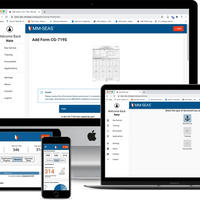
MM-SEAS is the reportedly the first software that automates the manual task of obtaining, tracking and renewing U.S. Coast Guard (USCG) credentials, helping to eliminate paperwork processing errors while delivering merchant mariner career guidance.Civilian mariners are required to have valid USCG Merchant Mariner Credentials (MMC) to be onboard any commercial or federal ship in the United States. Credentialing is a complex and vague process. From 2012 to 2018, 44.9 percent of approximately 500…
Maritime Resilience and the Human Element at MRS2020
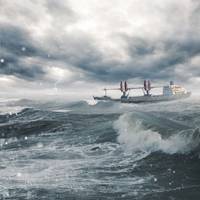
Has the age of maritime discovery and exploration actually ended? Perhaps not exactly. As the history of maritime resilience and the human element shows, as far back as the 1500s and earlier, from using new navigational aids and improved ship designs, to coastal and inland route sailing, to navigating on open seas with uncertain charts, wayward icebergs, dense fog and luckily at times, clear starry nights, mariners have faced human element and maritime resiliency challenges. "Short of food and water…
Meet the Maritime Education Standards Council
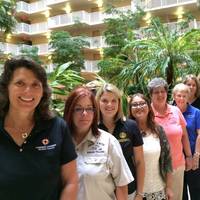
The Maritime Education Standards Council (MESC) is a coalition of 35 member schools in the U.S. and Canada that offer U.S. Coast Guard (USCG) approved maritime training courses to professional and recreational mariners. The coalition was formed with the aim to safeguard education standards and provide students who utilize MESC schools with a high level of training that meets all USCG guidelines. The organization is comprised of privately owned, public and/or nonprofit maritime education providers that offer national and STCW maritime education…
Insights: Capt. Novotny, Commanding Officer, USCG National Maritime Center
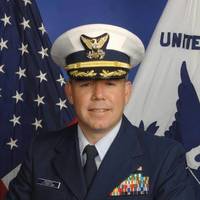
Captain Jeffrey P. Novotny is Commanding Officer of the U.S. Coast Guard’s National Maritime Center in Martinsburg, WV. He is responsible for all activities related to professional credentialing, training and assessments of the nation’s 215,000 merchant mariners. He graduated from the U.S. Coast Guard Academy with a degree in Mathematics and Computer Science. Prior to commanding the NMC, he was the Deputy Commander at the Coast Guard’s Deployable Operations Group. His duties included the oversight and responsibility for all personnel…
Transas to Supply TechSim Solutions to SUNY Maritime
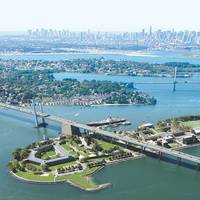
The Navsim Services and Transas Americas Team, have been awarded contracts for supply of a combination of full mission, classroom and cloud based Transas Technical simulation (TechSim) solutions for the State University of New York (SUNY) Maritime College. The full mission and classroom systems are being procured to meet forthcoming new United States Coast Guard (USCG) National Maritime Center (NMC) training requirements, and include multiple models from the Transas library with the latest functional capabilities of the Transas TechSim platform.
New Maritime Training Facility in Florida
Florida has a new facility to develop and train Merchant Mariners. Florida Maritime Training Academy has submitted Basic Safety Training and Able Bodied Seaman courses to USCG National Maritime Center (NMC) for approval and expects to hold classes in the Fall of 2011. The Facility is strategically located next to Indian River Terminals in the Port of Fort Pierce. With access to the waterfront, the school will be able to conduct relevant, “hands-on” training to help establish and reinforce the skills to safety work aboard all types of vessels. FMTA will conduct marine Fire-Fighting at the new state-of-the-art IRSC Fire Fighting Academy near their campus in Fort Pierce. For more information, visit www.fmta.com
FMTA to Offer Classes This Fall
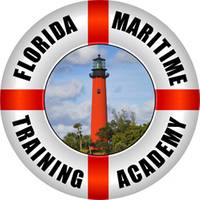
Florida has a new facility to develop and train Merchant Mariners. Florida Maritime Training Academy has submitted Basic Safety Training and Able Bodied Seaman courses to USCG National Maritime Center (NMC) for approval and expects to hold classes this coming fall. The training center is located near the Indian River Terminals in the Port of Fort Pierce. With access to the waterfront, the school will be able to conduct relevant, “hands-on” training to help establish and reinforce the skills to safely work aboard all types of vessels.
SOCP's Philadelphia Agenda Includes Maritime Security
The Ship Operations Cooperative Program (SOCP) invites maritime industry representatives to attend the SOCP's June 11-12, 2002, meeting in Philadelphia, PA. Join SOCP at its public meeting at the Naval Surface Warfare Center in Philadelphia. Hear featured luncheon speaker, CAPT William G. Schubert, Maritime Administrator, U.S. Department of Transportation and guest dinner speaker Mr. Ronald McAlear, CEO, Kvaerner Philadelphia Shipyard. Participants will also hear from Ms. Cleopatra Doumbia-Henry, Deputy Director, ILO, on Maritime Security and the Maritime Workforce; CAPT Ernest Fink, USCG-National Maritime Center on Licensing Program Reengineering and STCW Update; and a panel presentation on maritime security, moderated by James J. Zok, U.S. Maritime Administration.
USCG – NMC Relocates
Effective October 1, the USCG National Maritime Center (NMC) has relocated from its prior office in Arlington, Virginia to a temporary office in Kearneysville, West Virginia. Plans call for a December move to a permanent location in Martinsburg, West Virginia. [Source: HK Law]
USCG – National Maritime Center
The Coast Guard promulgated an organizational rulemaking authorizing the Commanding Officer of the National Maritime Center (NMC) to perform certain mariner credentialing functions that are now performed solely by Officers in Charge, Marine Inspection (OCMI). Plans call for many mariner credentialing functions to eventually be transferred from the OCMIs to the CO, NMC. During the transition process, these authorities will be shared. The amendment is effective September 20. source: HK Law
Proposed & Interim Rules
EPA is proposing an emission control program for new compression-ignition marine engines rated at or above 37 kW. The affected engines are used for propulsion and auxiliary purposes in a wide variety of marine applications. The standards proposed for these engines would require substantial reductions in oxides of nitrogen and particulate matter emissions to correspond with the next round of emission standards for comparable land-based engines. The proposed standards are expected to provide a significant reduction in oxides of nitrogen and particulate matter from emissions from this source. When combined with other mobile source emission control programs, the program will help provide long-term improvements in air quality in many port cities and other coastal areas.
National Maritime Center Considers Limited License for Docking Pilots
The USCG's National Maritime Center (NMC) is seeking comments from the harbor services industry on a proposed limited first class pilot's license for docking pilots. Docking pilots, working with tugs, provide maneuvering assistance to seagoing vessels during docking and undocking procedures, short harbor moves to and from anchorage, or shifting between berths. The regulations concerning the issuance of first class pilot's licenses contain some requirements that may bar many tug masters from qualifying for the license. The regulations stipulate an individual must serve 18 months on vessels over 1,600 gross tons. In a limited number of ports, the USCG can require the sea service requirements be met with service aboard a self-propelled vessel.





